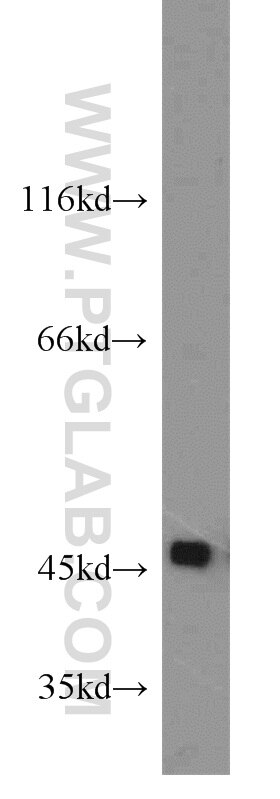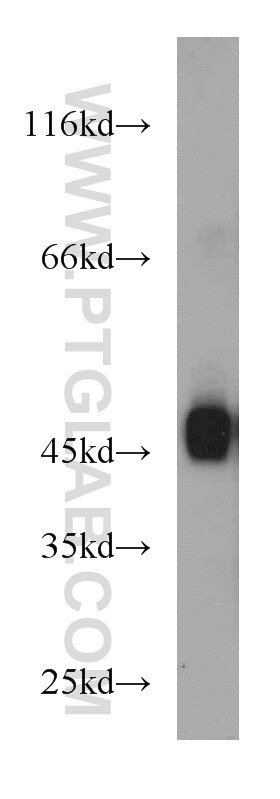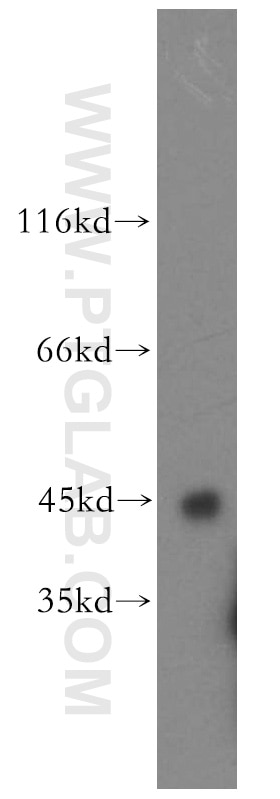Validation Data Gallery
Tested Applications
| Positive WB detected in | PC-3 cells, human testis tissue, MCF-7 cells |
Recommended dilution
| Application | Dilution |
|---|---|
| Western Blot (WB) | WB : 1:500-1:1000 |
| It is recommended that this reagent should be titrated in each testing system to obtain optimal results. | |
| Sample-dependent, Check data in validation data gallery. | |
Published Applications
| WB | See 1 publications below |
Product Information
11208-1-AP targets SPAM1 in WB, ELISA applications and shows reactivity with human samples.
| Tested Reactivity | human |
| Cited Reactivity | bovine |
| Host / Isotype | Rabbit / IgG |
| Class | Polyclonal |
| Type | Antibody |
| Immunogen | SPAM1 fusion protein Ag1682 相同性解析による交差性が予測される生物種 |
| Full Name | SPAM1 |
| Calculated molecular weight | 58 kDa |
| Observed molecular weight | 45-47 kDa |
| GenBank accession number | BC026163 |
| Gene Symbol | SPAM1 |
| Gene ID (NCBI) | 6677 |
| RRID | AB_2194936 |
| Conjugate | Unconjugated |
| Form | Liquid |
| Purification Method | Antigen affinity purification |
| UNIPROT ID | P38567 |
| Storage Buffer | PBS with 0.02% sodium azide and 50% glycerol , pH 7.3 |
| Storage Conditions | Store at -20°C. Stable for one year after shipment. Aliquoting is unnecessary for -20oC storage. |
Background Information
SPAM1(sperm adhesion molecule 1), also named as Hyal PH20, belongs to the glycosyl hydrolase 56 family. SPAM1 is a GPI-anchored enzyme present on both the sperm plasma membrane and acrosomal membrane. It is involved in sperm-egg adhesion.
Protocols
| Product Specific Protocols | |
|---|---|
| WB protocol for SPAM1 antibody 11208-1-AP | Download protocol |
| Standard Protocols | |
|---|---|
| Click here to view our Standard Protocols |
Publications
| Species | Application | Title |
|---|---|---|
Int J Biol Macromol TMT-based quantitative N-glycoproteomic analysis reveals glycoprotein protection can improve the quality of frozen bovine sperm. |


